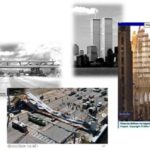- Course No.: E – 1653
- PDH Units: 3
No data found for Custom Course Number
No data found for Custom Course Units
- Course No.: E – 1653
- PDH Units: 3
Intended Audience: civil, mechanical, energy, electrical, environmental and general engineers
PDH UNITS: 3
Air distribution systems bring conditioned (heated and cooled) air to people occupying a building, and therefore directly affect occupant comfort. Over the last several decades, significant improvements have been made to the design of air distribution systems as well as to the way in which these systems are controlled. These improved designs and controls can result in dramatic energy savings, yet many buildings continue to rely on obsolete, inefficient systems for this critical function. The energy savings achieved in the Retrocommissioning, Lighting, and Supplemental Load Reductions stages are likely to have reduced the load on the building’s HVAC system, sometimes considerably. But before evaluating the potential to replace the existing heating and/or cooling equipment with smaller and more-efficient equipment, optimize the efficiency of the air distribution system itself. After completion of this course you will have tools you can use to improve utilization of energy in existing building heating, ventilating and air conditioning systems. Learning Objectives Upon completion of this course you will:
- Learn about the two basic types of air distribution systems;
- Learn how a constant volume distribution system responds to temperature demand;
- Learn criteria for conversion of a constant volume (CV) system a variable air volume (VAV) system;
- Learn an approach elimination of reheat systems;
- Learn how to optimize zone-level energy efficiency;
- Learn how to prevent over-cooling; and
- Learn the importance of damper maintenance.
Course Reviews
4.5
- 5 stars1
- 4 stars1
- 3 stars0
- 2 stars0
- 1 stars0
Once completed, your order and certificate of completion will be available in your profile when you’re logged in to the site.
Ethics Courses

E – 1865 Engineering Ethics: The Cases of Challenger and Columbia Shuttle Disasters; “Hold Safety Paramount” to Prevent Loss of Lifeby Dr. Abolhassan Astaneh-Asl, Professor Emeritus. Ph.D., PE

E – 1772 Engineering Ethics: “Hold Safety Paramount” to Prevent Loss of Lifeby Dr. Abolhassan Astaneh-Asl, Professor Emeritus. Ph.D., PE











Good review of HVAC principles and the lesson provides several methods to identify potential efficiency gains in older HVAC systems.
This course is highly recommended for engineers both new and experienced that like to gain knowledge on general to intermediate knowledge on HVAC systems and ways to upgrade them. I liked the case studies that were provided to illustrate the major impact and cost/energy savings an upgrade can have.